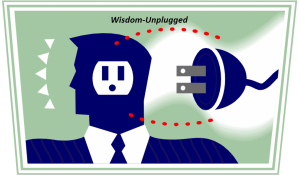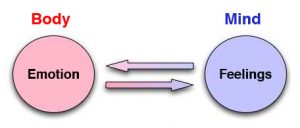
Wisdom-Trek / Creating a Legacy
Welcome to Day 1181 of our Wisdom-Trek, and thank you for joining me.
I am Guthrie Chamberlain, Your Guide to Wisdom
What The Gospel Isn’t – Worldview Wednesday

Wisdom – the final frontier to true knowledge. Welcome to Wisdom-Trek where our mission is to create a legacy of wisdom, to seek out discernment and insights, and to boldly grow where few have chosen to grow before.
Hello, my friend, I am Guthrie Chamberlain, your captain on our journey to increase wisdom and create a living legacy. Thank you for joining us today as we explore wisdom on our 2nd millennium of podcasts. This is Day 1181 of our trek, and it is Worldview Wednesday. Creating a Biblical worldview is important to have a proper perspective on today’s current events. To establish a Biblical worldview, you must also have a proper understanding of God and His Word.
On our Worldview Wednesday episodes we are in a series in which we are covering another detailed review of a book from one of today’s most prominent Hebrew scholars Dr. Micheal S. Heiser. We are taking a deep dive and will share Dr. Heiser’s insights into the question, which is also the title of his book “What Does God Want?”
What The Gospel Isn’t

In previous weeks, our discussion about the content of the gospel makes it clear that the gospel is about what Jesus accomplished on our behalf. Everlasting life, salvation, is a gift given to those who believe in what Jesus accomplished on our behalf.
Our culture tries to muddle this clarity. It offers self-improvement or vague “spirituality” as substitutes. But the biblical description of the gospel defies such things. The gospel (and salvation) has nothing to do with personal enlightenment, “looking within” on a journey of self-discovery. The gospel is not about exploring ideas from a spiritual smorgasbord. These are intellectual or psychological efforts and activities. They aren’t the gospel.
But these sorts of “alternative gospels” are the easy ones to detect and eliminate. There’s a much more difficult hurdle that impedes many people from resting in the simplicity of the salvation God offers.
Dr. Heiser suggested earlier that a lot of people you meet in church struggle with the gospel. The reason is that they are caught in a performance trap. You or someone you know may be able to define the term gospel and perhaps even the content of its meaning. But the idea that believing what Jesus did for you is the sum total of what’s necessary for everlasting life just doesn’t seem right. Surely we have to do something. Otherwise, how could we deserve it?

If you comprehend the Bible’s story and the content of the gospel, you should grasp immediately that we don’t deserve what God offers. And that’s a struggle for many people. We want to feel like we’ve earned the good things we have. We don’t want to be a charity case. It feels wrong to get something good without having worked for it, at least a little.
Guilt distorts thinking in even more subtle ways. It can paralyze our ability to see the gospel as the unconditional gift it is. Guilt is what drives some people to justify a gift by concluding it’s deserved because of something they did for the gift-giver at some point. And if they can’t convince themselves of that, they determine to do something after the fact to make themselves feel deserving of the gift. Guilt blinds us to the love of God shown in the gospel. Ultimately, we must come to grips with how self-centered this thinking is.
That may sound harsh, but hear me out…Working hard to make someone else think you have value requires you to focus on yourself. You can’t be focused on someone else when the goal is to make another person think you are worthy of their attention or love. We want to feel good about ourselves (i.e., we legitimately deserved something, so we aren’t taking what doesn’t belong to us). We also want others to feel that way about us (i.e., we want others to give us something because of the way we make them feel about us).
The gospel strips this away and casts it aside. It exposes us, demanding naked humility. It insists the focus be entirely on God and Jesus. That’s why it’s a hard pill to swallow for so many. It doesn’t let us take any credit.
What it comes down to is that the gospel cares nothing about what you do, but cares everything about who you already are. You’re human. You are the object of God’s love and plan from the very beginning. None of that requires performance. It just is.
Because we’re sinners living in a fallen world, we’re locked into thinking no one would love us if they really knew us completely, inside and out. Consequently, we can’t imagine God loving us since there’s nothing about us that escapes his attention. He knows every thought, word, impulse, and deed. The guilt that creates within us and the normalcy of our conditional relationships make the unfiltered love of God for us in the gospel hard to accept. From our perspective, it doesn’t make sense.

I should say at this point that I’m not suggesting that people who hear the true gospel and embrace it with all sincerity aren’t really saved. I honestly believe that they believe and are in the family of God.
What I’m describing is the soul-crushing internal life many of those believers are still living. Their guilt has transformed the love and grace of the gospel into a performance-centered, merit-based experience. They begin to wonder if God still loves them like he did the moment they understood the gospel and believed it. They look at the sins they commit as believers as reasons for God to be unenthused and ambivalent toward them. They are convinced they can’t measure up to God’s expectations and wonder if they “believed enough” or perhaps didn’t really believe at all when they thought they did.
The sad truth is that many genuine Christians live tormented, defeated lives, not because of the gospel, but because of the way their guilt has distorted the clarity of the gospel. When they read Scripture, they see only their sins and failures. Every sermon is an indictment (and shame on preachers who preach with that as their main intention). The spectacular wonder of the story gets lost and forgotten.
Salvation is not about performance. It never was, never will be, and never can be. We can do nothing to put ourselves at the level of God, that is to make ourselves fit for his presence. We lack God’s perfect nature. We are like God, created to image him. But by definition, we are less than God, and God knows it. That’s why his solution was Jesus, not you.
It’s absurd to think we can bridge that gap or fill that void by doing this or not doing that. God never learns anything new about you when you fail. He’s known you all along and still loved you right where you were and are. Romans 5:8 says it best, “But God showed his great love for us by sending Christ to die for us while we were still sinners.” Did you catch that? “While we were still sinners.”
You do not need to perform at a sufficient level to prod God into loving you. If you give that some thought, it’s really good news. God is never disappointed with you because He never has false expectations of your behavior. God has loved you all along, as we know from the most familiar verse John 3:16, “For this is how God loved the world: He gave his one and only Son, so that everyone who believes in him will not perish but have eternal life.”
We can boil this down to two thoughts. Salvation—membership in God’s family—cannot be earned. It can only be received, by faith (belief). God offers it because he is gracious and loving. There is no other reason, nor can there be.
That will conclude our lesson for this week from Dr. Heiser’s book “What Does God Want?” Next Worldview Wednesday, we will discover “What Is Discipleship?” I believe you will find each Worldview Wednesday an interesting topic to consider as we build our Biblical worldview.
Tomorrow we will continue with our 3-minute humor nugget that will provide you with a bit of cheer and help you to lighten up and live a rich and satisfying life. So encourage your friends and family to join us and then come along with us tomorrow for another day of our Wisdom-Trek, Creating a Legacy.

If you would like to listen to any of our past 1180 treks or read the Wisdom Journal, they are available at Wisdom-Trek.com. I encourage you to subscribe to Wisdom-Trek on your favorite podcast player so that each day’s trek will be downloaded automatically.
Thank you for allowing me to be your guide, mentor, and most importantly, your friend as I serve you through the Wisdom-Trek podcast and journal.
As we take this trek together, let us always:
- Live Abundantly (Fully)
- Love Unconditionally
- Listen Intentionally
- Learn Continuously
- Lend to others Generously
- Lead with Integrity
- Leave a Living Legacy Each Day
I am Guthrie Chamberlain reminding you to Keep Moving Forward, Enjoy Your Journey, and Create a Great Day Everyday! See you tomorrow!


















